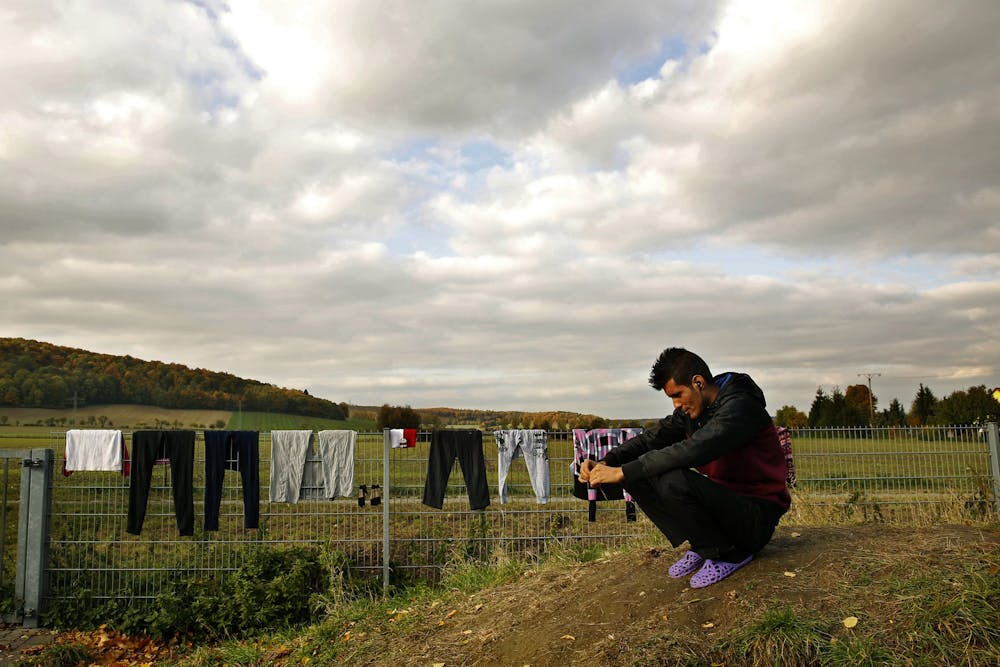Faculty from the Kelley School of Business worked with researchers at Ohio State on research related to the Syrian refugee crisis that proves relevant to today’s politics. Their research suggests governments should work with humanitarian organizations to monitor and influence the power of local retailers in rural areas heavy with refugees.
Alfonso Pedraza Martinez, an associate professor and department chair of operations and decision technologies at the Kelley School of Business, was a Ph.D. advisor to Telesilla Kotsi, the main author of the research. He said they were both interested in similar areas of research, and they invited his colleague Owen Wu to contribute because he was very skilled in research and analysis.
When the professors first started the research, the Syrian refugee crisis was a global conversation, he said.
“There were refugee camps in rural areas of Greece where refugees were in transition, hoping to reach European countries,” Martinez said.
He said the refugees received in-kind assistance meaning a bundle of goods for food and hygiene as opposed to cash for shopping with.
Related: [State Department Under Secretary talks security at America’s Role in the World conference]
Martinez said the goal was to show that cash and in-kind assistance were equally enjoyable.
“Fortunately, the Kelley School is very welcoming of socially responsible research,” Martinez said. “So something that has a potential impact on the lives of people that are miles and continents away, is being developed here in Bloomington, Indiana.”
He said that after getting sponsorship from Kelley, the team collected data from various sources of academic literature. Through this process, they were able to find models of cash assistance to refugees in competitive markets, Martinez said.
He said the current scenario was problematic because inflation would occur and the prices would increase for everyone if they gave direct money to refugees. Instead, they proposed a system in which humanitarian agencies give money to refugees and partner with the local government to create a price index, he said.
Martinez said the partnership would be able to monitor unfair price markups, and the government could deliver or restrict cash assistance to the retailer based on the price index behavior.
The retailer will continue to operate like normal, but there will be less pressure on the prices for the most necessary items according to the refugees entering the market, he said.
Related: [IU named a top producer of Fulbright Award recipients for 7th consecutive year]
Martinez said the solution can be generalized and implemented where there is prominent retail market power.
“We are working to try to disseminate our research because we believe this is important,” Martinez said.
Telesilla Kotsi, assistant professor of operations management at the Ohio State Fisher College of Business, said the Syrian refugees were the biggest humanitarian crisis at the time. She said while there were other groups of displaced people, the Syrians were the biggest community and a solution was important.
On her trip back to Greece, she said she conducted a series of interviews with the residents and retailers on the local economy.
“We started analyzing these interviews,” Kotsi said. “They all have experience in in-kind assistance which is delivering food and non-food items.”
Kotsi said the humanitarian organizations considered giving cash because the refugees could then choose what they needed the most.
Owen Wu, an associate professor in operations and decision technologies at the Kelley School of Business said as the number of refugees increases so does total demand. Even if the supply chain can support this, the retailers will raise the price and hurt both the refugees and locals in the process, he said.
“But there is a way to have humanitarian organizations collaborate with the government and institute some method to incentivize the retailers not to raise the price,” Wu said.
The proposed solution will regulate retailers’ pricing and control cash flow assistance.
“As long as there is such a potential to improve both refugees and local communities, we see that there shouldn’t be any hurdles,” Wu said.




